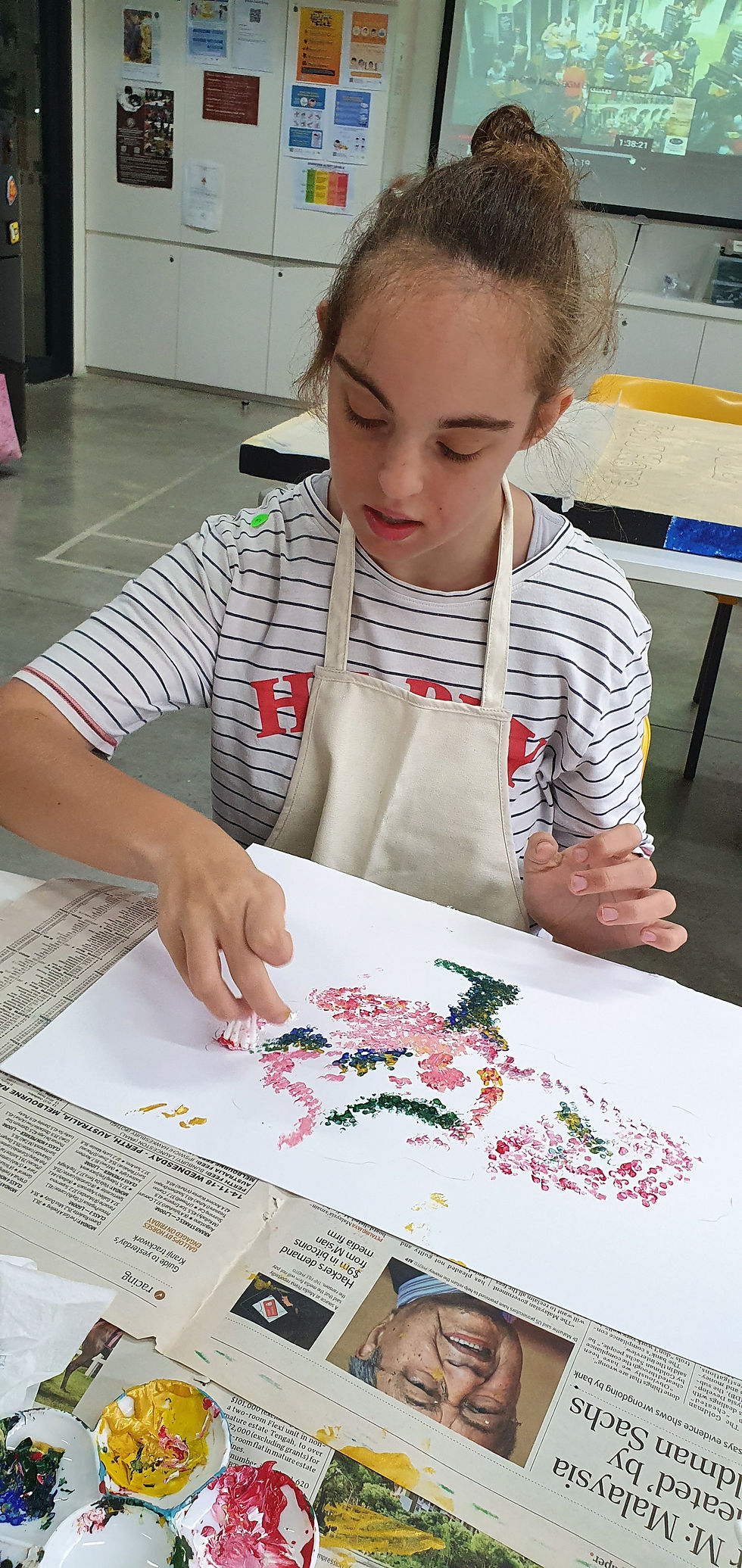
DEVELOPMENTAL DISABILITIES
Developmental disabilities constitutes of a wide range of long term conditions that is caused by physical or cognitive impairments or both, and more often pair with other comorbid conditions. The most common developmental disabilities in the world is known to be intellectual disabilities (ID). Due to the limited intellectual functioning, it becomes challenging for individuals living with ID to be able to reason, problem solve and to live independently.
Do you know?
An approximate of at least 1% of the adult population has intellectual disability (ID), and this makes up at least 33,000 adults with ID in Singapore.
Read more about the different conditions of developmental disabilities below:
*We have selected a few examples to elaborate.

PRADA WILLI SYNDROME
Prada Willi Syndrome is known to be a rare genetic disorder due to the missing function of chromosome 15, which causes the child to have an insatiable appetite for food. They are constantly hungry and has a unique food seeking behaviour, which leads to rapid weight gain. This creates potential for health risk such as diabetes, heart problems, sleep apnea and others.
For more information about PRADA WILLI SYNDROME.





CORNELIA DE LANGE SYNDROME
Cornelia de Lange syndrome is described as a rare condition due to growth and developmental delay, leading to short stature. The signs and symptoms can be easily identified by their distinctive facial features and abnormalities of bones in the limbs and fingers. The intellectual disabilities of the child can range from moderate to severe. Individuals living with this syndrome may experience hearing loss, myopia and congenital heart defects.
For more information about CORNELIA DE LANGE SYNDROME

TURNER SYNDROME
Turner syndrome is another rare and unique condition that affects only females. It is characterised by the poor development of the ovaries and short stature. Individuals living with Turner syndrome may experience congenital heart defects and hypertension when they reach adulthood. They can be distinguished by their distinctive facial features such as webbed appearance and short neck, receding jaws and droopy eyes.
For more information about TURNER SYNDROME

DOWN SYNDROME
Down syndrome is a common condition that is caused by an extra copy of the 21st chromosomes that leads to intellectual disability and developmental delay. The cognitive impairment of the child varies from mild to moderate. Adults living with down syndrome are at a higher risk of having Alzheimer's diseases and epilepsy.
Read more about DOWN SYNDROME








FILLING THE GAP
G: (educating the) GENERATION A: (shifting) ATTITUDES P: (gaining) PERSPECTIVE
SEEING BEYOND DISABILITY
Reframing the way we look at adults with special needs will create an impact in their lives in the long run. By recognising the innate qualities and capabilities of these individuals creates a pathway for them to have the opportunities to be expressive makers.
At Mamre Oaks, we place our primary focus on strategising our activities to allow our members to stay active and encourage them to create art. We believe the creative expression is a pivotal channel to help them to build a sense of self autonomy, self-worth and self-esteem.
the need for self care
Studies have shown that the deficit in self regulation can lead to self harm tendency in individuals with special needs. The shortage of outlets for individuals to express their inner turmoil can cause them to inflict pain on themselves such as self-scratching or skin picking.
Kinaesthetic movement such as dancing, walking or the process of art making, baking or cooking can be seen as an effective method to improve the well-being of individuals with specials needs, both verbal and non-verbal.
they are capable to feel emotions
The misconceptions that comes with the individuals with intellectual disability is that we pair their cognitive ability as a reflection of their emotive ability. These individuals are able to feel emotions, however they may not be able to make sense of complex emotions such as disappointment or hopelessness. They do experience the feelings that comes with the moment to moment interaction with their surroundings. This being said, emotional support plays a vital role to help them regulate these emotions.
THE LACK OF PROFESSIONAL CARE
The shortage of professional help in medical and psychological care for individuals with special needs poses a significant degree of constraints for them to progress and integrate with the environment and society more effectively.
The invisible disability categorised with individuals living with intellectual disability may suppress the urgency and need for long-term professional help to be made readily available. We believe the more awareness built, and the more the public is aware of the needs of these individuals, permanent support can be introduced to enable progressive development for families caring for individuals with special needs.




